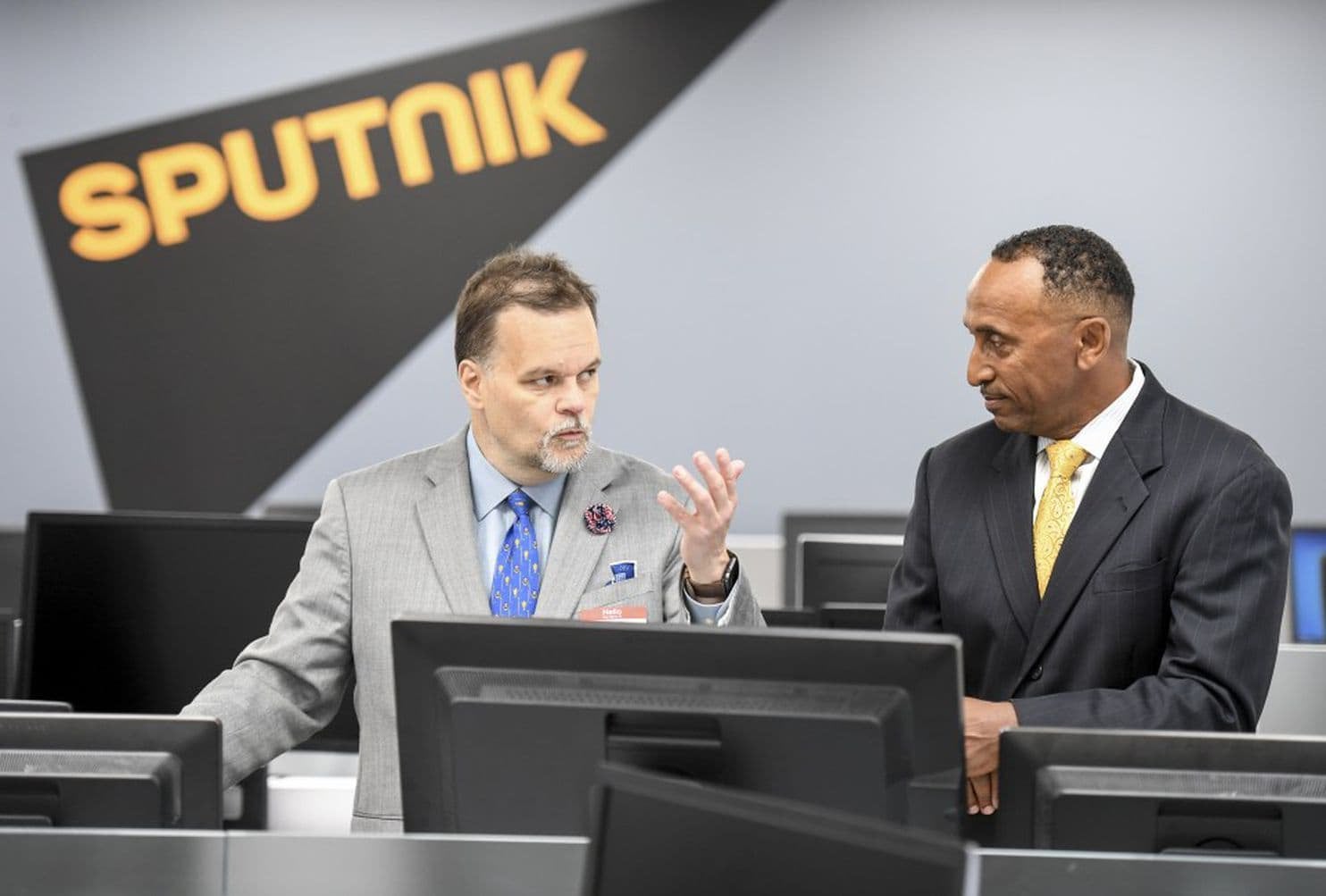
Before mentioning Russia’s manipulation of the Russian-language media in the USA, we should refer to the main theoretical aspects of the Russian Federation’s foreign policy.
Firstly, it must be understood that opposing the democratic and the non-democratic (authoritarian, totalitarian) political regimes, we can see that the latter have an obvious advantage: the non-democratic political regimes are completely free to choose the means of influence, even “on the opponent’s territory” (that is in another state).
Poisoning the defector-spy with the weapons of mass destruction (the case of Lytvynenko, Skrypal in Great Britain)? Not a problem. To trap at the consulate, kill and dismember the opposition journalist (this relates to Saudi Arabia and the tragedy of Jamal Khashoggi)? Easy! To make somebody return to the home country, to judge him for the anti-state activity and then put to death (Ruhollah Zam’s case, Iran)… The democratic regimes cannot afford such a “luxury”: the assassination of an opponent, human rights abuse, corruption – and that’s it! A swansong for political career. In the next elections the opponents will make so big deal out of all this, that it is better even not to be a candidate.
In addition, the non-democratic regimes are definitely not hampered by such a “trivia” as elections: whatever results they draw, so they are going to be. They could be even 146%, it wouldn’t make a difference. In other words, Russian Federation as a matter of principle does not impose restrictions to itself on how it may influence and manipulate the Russian-speaking population of any state. Besides, there’s always a way to turn things around and say “that weren’t us”… And the Russian voter will believe it (if he/she won’t – no one cares, the election result is already known). Sanctions? According to Putin, they bring only benefits!
Another significant theoretical aspect of Russia’s influence on the population of other states is manipulation by the notions “the Russians” and “the Russian-speaking ones”. If the first ones are the ethnic Russians, the former (or current) citizens of Russian Federation, then who are the second? And here we have a very curious issue – that is everyone who speaks Russian. And while in the first case we can refer to several million of ethnic Russians, in the second one the audience involves much more people. Ukrainians, Belarusians, Jews, and Latvians – all of them become affected by Russian propaganda.
Most cynically, for each state it is normal to protect (however, respecting the laws of the host country) their compatriots (even the former ones) and their ethnic groups abroad. But here we deal with the Russian-speaking! Not the Russians. Does that Russian-speaking Ukrainian from New York or Uzbek from Los Angeles need such a “support”? Not likely. But, they will certainly become the objects of influence and manipulation of Russian authorities.
There are many Russian-speaking people in the United States. Intentionally, we do not cite figures, as again: the Russians and the Russian-speaking should not be confused! And it is kind of incorrect to automatically include all people from the post-Soviet states into the “Russian-speaking” category. Another thing is that there is a very specific situation in the United States which, in our opinion, Russian propaganda benefits from. In the United States there are no requirements for e.g. doing business exclusively in English. Want a signboard of a jewelry house in Yiddish? You are welcome! In Russian or Ukrainian? No problem, too. And here the role of the Russian language as the dominant language of the former USSR becomes very noticeable: an obvious desire of a businessman is to cover as big audience of potential clients as possible. Logically, he/she will put an advertisement in the “Russian Bazaar”, an online newspaper for the Russian-speaking people in New York) exactly in Russian, so that more customers will understand.
In addition, there are Russian-language media in the United States, and they include not just the odious propaganda voice like “Russia Today”. There are resources created in the United States specifically for Russian speakers (here we underline again – the Russian-speaking, and not the ethnic Russians!) like “Russian advertising”, “Forumdaily”, the social media profiles like “Russian America TV” and dozens of others. Most of these resources deal with job advertisements, service delivery, and immigration issues, that is, the Russian-speaking community’s daily life in the United States. However, such resources often publish information about domestic and foreign policy of Russia, reprint the interviews with the odious propagandists, and simply engage in conspiracy (so many miraculous recipes to avoid the COVID-19 can be found in such media! And this does not prevent them from publishing the “disclosures” of the coronavirus worldwide conspiracy now and then). However, the main weapon of such resources, as it was mentioned before, is the manipulation of “Russian” and “Russian-speaking” concepts, the blurring the boundaries between ethnic groups from the post-Soviet states and creating the sense of community, kinship and equality.
To crown it all, the Russian Federation uses the democracy of American society to make its agents of influence operate and to shape public opinion of the American population. This activity is directed upon the Russian-speaking whose interests Moscow protects so vigorously and by this the latter explains its activities, manipulating the terms of “Russian” and “Russian-speaking”.
To counteract such activities Ukraine can actively support the public organizations of the Ukrainian community in the United States (this is not even about funding, but about media and organizational support), promotion of their activities in Ukraine. The Ukrainians who become objects of influence and “treatment” by such media can use the methods of counteraction as permanent information hygiene and critical thinking.